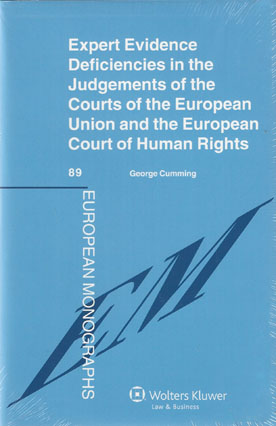
Questions of admissibility surrounding expert evidence have always bedevilled the judiciary. However, statutory language and rules of procedure, conscientiously interpreted and applied to the use of expert evidence, can go a long way towards achieving rectitude of decision where judgement requires knowledge not necessarily possessed by the jurists responsible for trying the case.
In this remarkable work of analysis and commentary, George Cumming takes the position that the prominent international courts of Europe fail to follow their own rules of procedure in the use of expert opinion, thus potentially breaching the express right to a fair trial embodied within Article 6 (1) ECHR.
In the process of developing his core thesis that statutory interpretation often requires the use of expert evidence in order to achieve a semantically accurate meaning, the author focuses on such crucially important topics as the following:-
Given the limited ability of procedure to achieve rectitude of decision, this extraordinary work has far-reaching implications for recognition of the rule of law. The author shows how the expert evidence deficiency found in the European courts undermines empirical analysis of their application of the TFEU and ECHR, thus adding another obstacle to an already problematic search for legal truth. Dealing as this book does with the use of vital evidence in the context of a procedural deficit, it cannot be ignored by European jurists or legal academics.